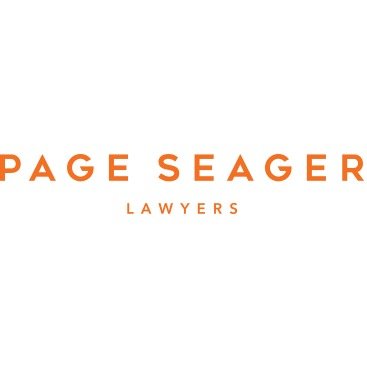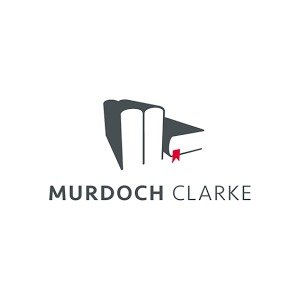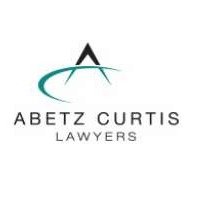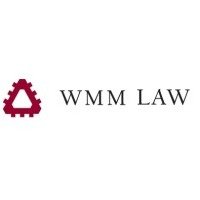Best Merger & Acquisition Lawyers in Hobart
Share your needs with us, get contacted by law firms.
Free. Takes 2 min.
List of the best lawyers in Hobart, Australia
About Merger & Acquisition Law in Hobart, Australia
Merger & Acquisition (M&A) law in Hobart, Australia, is an integral aspect of corporate law that governs the consolidation or transfer of companies. This field of law is key to facilitating the growth, restructuring, or strategic focus of businesses. In Hobart, like the rest of Australia, M&A transactions are supervised under a combination of federal laws and regulations, including the Corporations Act 2001, the Australian Competition and Consumer Commission (ACCC) guidelines, and various industry-specific regulations. Tasmania's vibrant local business environment provides both opportunities and challenges for those navigating the M&A landscape.
Why You May Need a Lawyer
Individuals or companies typically require legal assistance in M&A for several reasons. Legal expertise is crucial in negotiating terms and preparing the necessary documentation for mergers or acquisitions. Lawyers also help ensure compliance with the relevant regulatory framework and manage due diligence processes. Furthermore, legal advice is beneficial in mitigating risks, resolving disputes that may arise during the transaction, and strategizing tax considerations. Seeking a lawyer's guidance can significantly increase the chances of a successful transaction and protect the interests of all parties involved.
Local Laws Overview
Several key legal considerations impact M&A transactions in Hobart. The Corporations Act 2001 provides the primary legal framework, dealing with issues like directors' duties, shareholder rights, and disclosure obligations. The ACCC plays a critical role in reviewing potential anti-competitive effects of a merger or acquisition. In addition, Tasmania may have specific requirements or considerations, especially regarding the approval processes for industries like natural resources or telecommunications. Understanding these regulations is essential for a seamless M&A process.
Frequently Asked Questions
What is the role of the ACCC in M&A?
The ACCC assesses whether a merger or acquisition substantially lessens competition in any market. They have the authority to block transactions that may harm market dynamics.
How long does the M&A process typically take?
The duration of M&A transactions can vary greatly, from a few months to over a year, depending on the complexity of the deal and regulatory scrutiny involved.
What are some common challenges in M&A transactions?
Common challenges include valuation disputes, regulatory hurdles, cultural integration post-merger, and unanticipated liabilities.
Is shareholder approval necessary for mergers?
Yes, significant transactions often require the approval of shareholders, particularly if there are major changes in company structure or when a large portion of assets is involved.
How important is due diligence in M&A?
Due diligence is crucial for evaluating risks, verifying information, and making informed decisions about the transaction.
Can foreign entities acquire Australian companies?
Yes, but foreign entities may need approval from the Foreign Investment Review Board (FIRB), depending on the industry and value of investment.
What tax considerations are involved in M&A?
Tax implications can include capital gains tax, stamp duty, and the structuring of assets and liabilities. Understanding tax laws is vital for a successful transaction.
What is a scheme of arrangement?
A scheme of arrangement is a court-approved agreement often used for company reorganizations or takeovers, subject to shareholder and court approval.
Are there industry-specific regulations for M&A in Hobart?
Yes, sectors like banking, media, and telecommunications may have additional regulatory requirements to consider during an M&A transaction.
How can disputes during M&A be resolved?
Disputes can often be resolved through negotiation, mediation, or arbitration, with legal representatives playing an essential role in these processes.
Additional Resources
Several resources can aid those seeking legal advice in M&A. The Australian Securities & Investments Commission (ASIC) provides guidelines and regulations applicable to corporate governance. The ACCC offers insights into competition law related to M&A. Additionally, local business chambers and legal associations in Tasmania can be excellent sources of information and support.
Next Steps
If you are considering or currently involved in an M&A transaction, consulting a qualified lawyer specializing in this field should be your next step. Begin by researching and reaching out to legal firms with expertise in corporate law and M&A in Hobart. Preparing all necessary documentation and understanding your objectives will help streamline your initial consultation. Lastly, stay informed about current laws and any regulatory changes that may affect your transaction.
Lawzana helps you find the best lawyers and law firms in Hobart through a curated and pre-screened list of qualified legal professionals. Our platform offers rankings and detailed profiles of attorneys and law firms, allowing you to compare based on practice areas, including Merger & Acquisition, experience, and client feedback.
Each profile includes a description of the firm's areas of practice, client reviews, team members and partners, year of establishment, spoken languages, office locations, contact information, social media presence, and any published articles or resources. Most firms on our platform speak English and are experienced in both local and international legal matters.
Get a quote from top-rated law firms in Hobart, Australia — quickly, securely, and without unnecessary hassle.
Disclaimer:
The information provided on this page is for general informational purposes only and does not constitute legal advice. While we strive to ensure the accuracy and relevance of the content, legal information may change over time, and interpretations of the law can vary. You should always consult with a qualified legal professional for advice specific to your situation.
We disclaim all liability for actions taken or not taken based on the content of this page. If you believe any information is incorrect or outdated, please contact us, and we will review and update it where appropriate.














